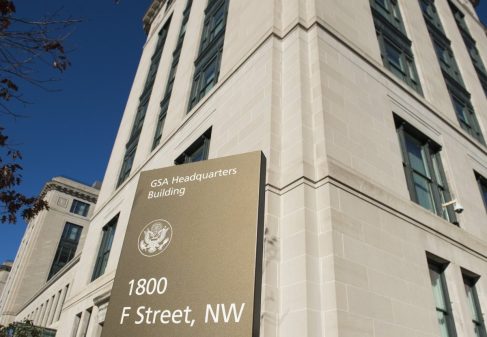As money makes its way back into the federal government post-sequestration and as agency chief information officers might soon have more influence over technology spending with new IT acquisition reform close to becoming law, some CIOs aren’t in a rush to return to the redundant, money-slinging ways of IT days past.
Sonny Hashmi, CIO at the General Services Administration, said, though he’s still curious where that money coming back is going because he hasn’t seen it, sequestration taught the government good lessons about how to operate lean.
“Smart people have taken advantage of this time that we’ve lived through … and made some really smart choices,” Hashmi said Thursday at a luncheon hosted by the Association for Federal Information Resources Management. “If you’ve used the last couple years to build that muscle … to test your assumptions and test your peers’ assumptions, then hopefully you’ll continue to do that. We need to continue that discipline, because one of the reasons we got to where we are today, why we have thousands of websites, thousands of data centers and thousands of these redundant, duplicative platforms and solutions is because there was just no forcing function to ask yourself the hard questions. And it’s easy to get back into that habit.”
After all, the mission to serve the American public hasn’t changed with more money, he said, and any reductions through efficiency can be used elsewhere.
“You’ll always have more that you’ll need to be doing that will directly impact the American people,” Hashmi said. “By going back to ‘OK, now that we have the money back, let’s pull the email system back in’ doesn’t make sense to me. [The current] discipline needs to continue because every dollar we save in commodity, in common, in reuse — those things can legitimately, effectively go to a more-commoditized, cheaper, more cost-effective solution.”
Karen Britton, CIO in the Office of Administration at the Executive Office of the President, told attendees that just because she might have more dollars to spend, that doesn’t mean there will be the same or less to spend it on. In her office especially, IT commodities like more storage space for preserving emails continue to rise.
“We’ve got to separate out the costs of business in running versus what we’re trying to build and deliver,” Britton said. Her big goal is to work on being more efficient. Five-year strategic plans, she said, are one example of what’s not working in federal IT.
“I really don’t think that CIOs should have five-year strategic plans,” Britton said. “I think we need to flip this thing on its head and get some of our boardroom members, our senior staff that are involved in some of the decisionmaking of our budget, to understand that we need to really look at one to two years, we really need to look at tech insertion and not look at long-term plans because honestly, we don’t necessarily know [what will happen]. What we lay out today on paper in terms a of a five-year plan is going to change in the next year. So there needs to be a lot of that flexibility.”
Hashmi took it even further, saying thinking beyond six months in federal IT is hazardous.
“You don’t have the luxury anymore, just because of the industry we live in, to have long-term strategic plans [or] even to have long-term projects that go beyond six months,” he said. “If a project lasts more than six months, I can assure you that things will change so dramatically during that time that you will have to do a rethink.
She added, “You have to create an environment in a way that you can pivot. If your contracts are so rigid that you cannot change along the way, then you’ve almost failed before you even started.”
GSA has rethought the business process of IT in years past, and, though as a result its budget is 22 percent less, it has made its IT operations and made it more efficient. And now that the Federal Information Technology Acquisition Reform Act is getting close to giving Hashmi and other CIOs more IT budget authority, he hopes other agencies will reduce the complexities of their IT operations and boost efficiency.
“We’ve only been able to do that and not cut critical missions because we really asked ourselves” hard questions, Hashmi said. “I’m hoping with this new legislation, we can put more of that kind of energy to federal IT in general and get some more results in other agencies as well.”






